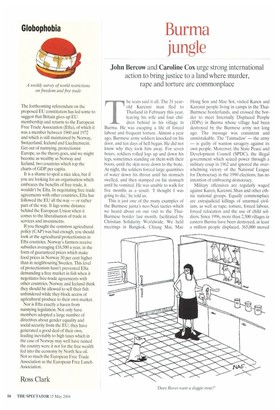Globophobia
A weekly survey of world restrictions on freedom and free trade The forthcoming referendum on the proposed EU constitution has led some to suggest that Britain gives up EU membership and returns to the European Free Trade Association (Efta), of which it was a member between 1960 and 1972 and which is still maintained by Norway, Switzerland, Iceland and Liechtenstein. Get out of nannying, protectionist Europe, so the theory goes, and we might become as wealthy as Norway and Iceland two countries which top the charts of GDP per capita.
It is a shame to spoil a nice idea, but if you are looking for an organisation which embraces the benefits of free trade, it wouldn't be Efta. In negotiating free trade agreements with other countries, Efta has followed the EU all the way — or rather part of the way. It lags some distance behind the European Union when it comes to the liberalisation of trade in services and investments.
If you thought the common agricultural policy (CAP) was bad enough, you should look at the agricultural protectionism in Efta countries. Norway's farmers receive subsidies averaging £16,500 a year, in the form of guaranteed prices which make food prices in Norway 30 per cent higher than in neighbouring Sweden. This level of protectionism hasn't prevented Efta demanding a free market in fish when it negotiates free-trade agreements with other countries. Norway and Iceland think they should be allowed to sell their fish unhindered while they block access of agricultural produce to their own market. Nor is Efta exactly a haven from nannying legislation. Not only have members adopted a large number of directives about gender equality and social security from the EU; they have generated a good deal of their own, leading inevitably to high taxes which in the case of Norway may well have ruined the country were it not for the free wealth fed into the economy by North Sea oil. Not so much the European Free Trade Association as the European Free Lunch Association.
Ross Clark


































































































 Previous page
Previous page